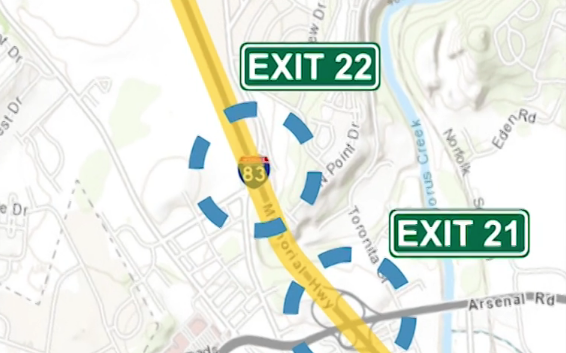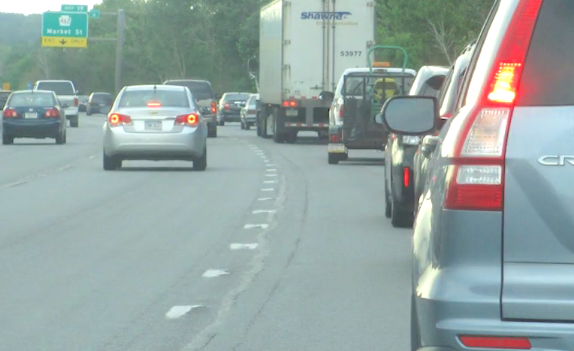In this year's installment of its annual “Highway Boondoggles” report, Gideon Weissman of Frontier Group and Matthew Casale of U.S. PIRG Education Fund deliver a stark warning about the billions of dollars states spend on unnecessary highways that fracture our cities, deprive transit of scarce funds, and pollute our environment. Below is the seventh of nine installments detailing case studies of these harmful roadways: A widening project in southern Pennsylvania that's being touted as a way to improve traffic flow, but sucks up resources would be far better spent on operational improvements to reduce crashes and improve accident response.
Pennsylvania is moving forward with a plan to spend $300 million in order to widen I-83 in York County to eight lanes from four. But project documents fail to show how the project will solve any problems or bring clear benefits to the region.
According to the project website, aside from the vague primary goal of achieving “a more functional and modern roadway,” the main goal of the project is to “improve future traffic flow.” But the initial project study conducted for PennDOT notes that “the existing I-83 mainline corridor as well as the ramp merge and diverge areas operate with reasonable free-flow operations.” The study also found the road in decent condition, with “no significant defects were noted during a field inspection conducted in July of 2017.”

The study’s only mention of bad congestion in the corridor is that resulting from traffic incidents, which “cause long-lasting gridlock given the high volume of traffic.” These findings suggest that improving operations, including incident management, would be a better and cheaper strategy than expanding capacity. Indeed, the I-83 Master Plan notes that “[a]ny improvements made to this corridor should consider and evaluate” new strategies to improve system management and operations. These include new incident-detection cameras to fill coverage gaps in the existing system, “speed management, and queue-warning systems,” road-weather-information systems, and more.
For a rural and suburban highway outside of a major metropolitan area, a low-cost strategy of improving operations rather than making massive capital investments makes sense. It would also align with strategies preached by the Federal Highway Administration. According to the administration, using so-called “transportation systems management and operations” strategies can help “make the most of the infrastructure already in place.” The administration has sought to help transportation agencies reorient “from construction to management of the transportation system.”
By forgoing road expansion, and instead opting for a cheaper and likely more effective focus on better management and operations, Pennsylvania could both save money and better serve the needs of the region.
Sponsored post: Spin and Better Block Foundation are calling on designers, urbanists and anyone who cares about safe and livable streets, to submit ideas for a new generation of multimodal parklets. Winning designs will get built and installed in Denver in September. Let’s take back our streets from cars, one space at a time. Apply now: https://www.spin.pm/streets






